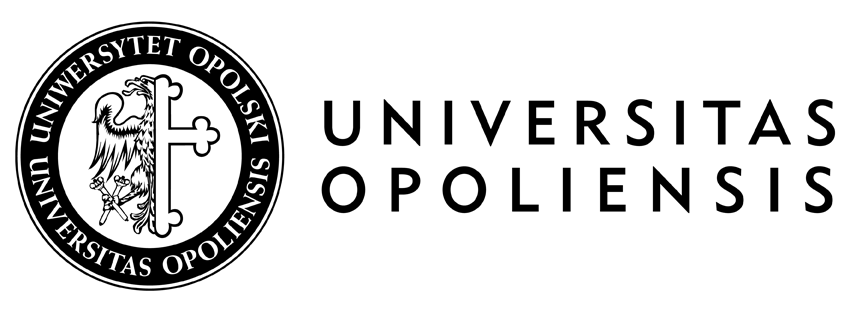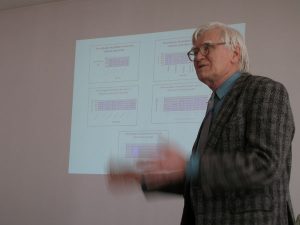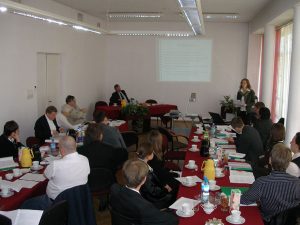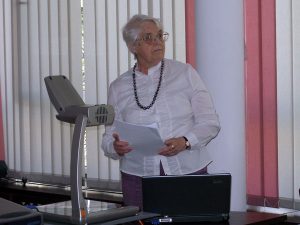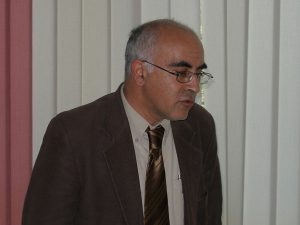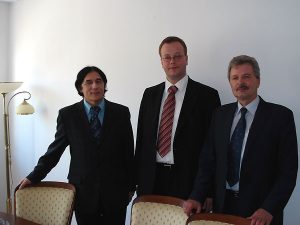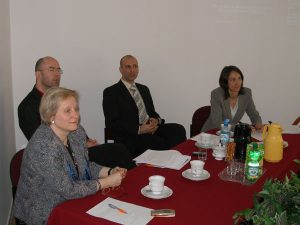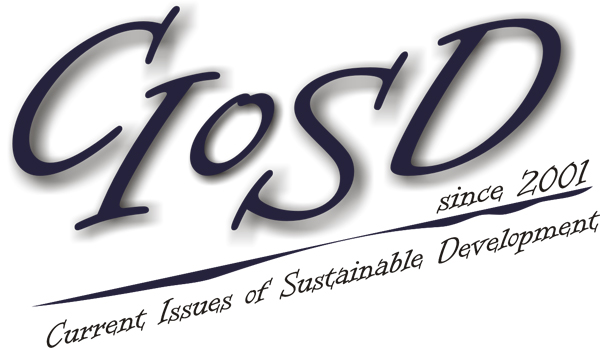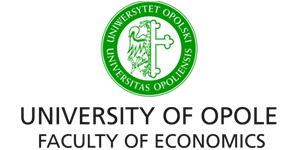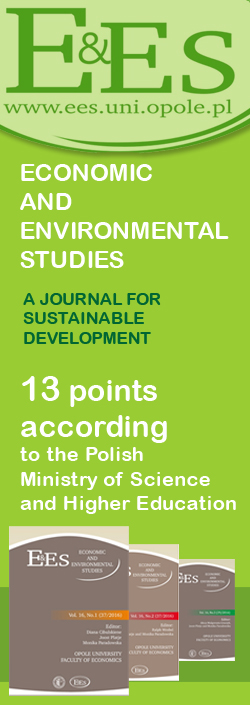On 16 and 17 April 2007 about 40 scientists from Poland, the Netherlands, Germany, France, England and Greece took part in the Seventh International Conference on “Current Issues of Sustainable Development” organised by Prof. Joost Platje and Prof. Janusz Słodczyk, in co-operation with Diana Rokita, Dr Robert Poskart and the Student Scientific Circle on Sustainable Development at the Faculty of Economics of Opole University. The conference was organised in co-operation with the Polish Association of Environmental and Resource Economists and generously sponsored by the City Council of Opole and the Coastman Project.
The aim of organising such conferences it to create and extend a platform for discussion, exchange of ideas and development of cooperation. Sustainable development has become more and more important as it has become the fundament of European development policy. Although many local, regional, national and European development policies are based on the concept of sustainable development, a question of course remains whether practice supports sustainability. This issue returned in different presentations and discussions.
First, professor Platje gave a general introduction to institutional aspects of sustainable development. Dr Kozłowska presented the Coastman Project. The particular panels concerned sustainable develpment, or the lack of sustainability, in socialist countries, education, business and sustainable development, issues of priorities in sustainable development and problems with implementation, and different governance related issues.
A point that returns at many conferences, and also was discussed at this conference, is the question how the concept of sustainable development is interpreted. Does the interpretation depend on the level of socio-economic development, meaning that environmental issues become important only after fulfilment of socio-economic goals, while economic goals often receive priority? Interesting papers on sustainability issues in countries in transition were presented by Prof. Marquand (Oxford, England), Dr De Deugd (Groningen, the Netherlands), and Renata Matuszkiewicz (Gdańsk, Poland). In the discussion, led by Prof. Delakowitz (Zittau, Germany), the following issues came up. How to communicate issues of sustainable development between highly developed countries and a country like Kazakhstan, which was forced to change its economic system after the break down of the Soviet Union, while a question remains whether they really wanted change and, as a consequence, know what they want? In former Soviet republics the political turbulence makes creation of sustainable development policy very difficult, and research seems to comfirm that the main focus is on economic issues, while social issues may receive some attention. Within this context the question was raised why Russia signed the Kyoto Protocol. It was argued that this may be for international political reasons.
Two very interesting papers on education and sustainable development were presented by Dr Manolas (University of Thrace, Greece). While discussing education, the question came up how many people engage in education. By definition, education can only lead to positive results when people are involved. Furthermore, methods are of crucial importance. Education is not only about e.g. theory and practice of sustainable development, but also about “getting the feeling”. For this, often new innovative methods are required, and a question remains whether teachers are interested in changing their teaching methods, while changing ways of thinking and transferring ideas is time consuming (high transaction costs).
Markus Will (Zittau, Germany), quoting Milton Friedman’s statement thet “the business of business is business”, in fact argued that business only seems to become interested in a broader kind of sustainability when their own business is threatened. Then, following the arguments of Prof. Platje and Robert Kudłak (Poznań, Poland), institutions (rules of the game) should be shapen in such a way that firms get incentives to do something which is not directly in their own interest – stimulating sustainability. In other words, it is e.g. about creating positive environmental and social effects as a side effect of achieving the main goal – profit. Environmental management systems, as discussed by Bartosz Fortuński (Opole, Poland) may be an instrument in this context, as they may stimulate sustainable practices and lower information costs.
Prof. Platje, students from the Scientific Circle on Sustainable Development (Opole University, Faculty of Economics), Robert Kazimierowicz (York University, England) and Dr Janikowska (Katowice, Poland) presented papers on priorities and implementation of sustainable development. From the discussion it seems that family, friends, income, work and direct / local environmental issues are more important than economic and social problems somewhere else. In this context information and knowledge are essential: Do citizens know what is happening? What are the sources of distribution of information? Information – where, how, what and for whom is it produced? A point which came up in the presentation of Dr Janikowska is that it seems that human beings need to develop. This implies continuous change. Does change mean that systems are improving or deteriorating? Or is sustainable development just a history of continous perceived decline? The good old times are better – because they don’t return?
Very interesting papers on governance and other issues of sustainable development were presented by Prof. Manteuffel (Warsaw, Poland), Agnieszka Sobol (Katowice, Poland), Dr Strzelecka (Łódź), Dr Kreft (Bureau for Regional Sustainable Development, Germany), Dr Płociennik (Wrocław University, Poland), Dr Kociszewski (Wrocław University of Economics, Poland), Diana Rokia (Opole University, Poland) and Katarzyna Wyporska (Warsaw Agricultural University, Poland).
What came out of the final discussion is that a problem may be that scientists are “forced” by their discipline, funders, etc. to become specialised, while sustainable development often requires a broader, interdisciplinary approach. Another issues is, when getting specialised, whether we understand the specific way of thinking in other subjects. Furthermore, is only what we can measure important, or should we also take the unmeasurable and difficult to measure issues into consideration? It is like an illness about which we do not know or which is not fully researched yet – we may not take the possibility of this illness into consideration, but we may face very serious consequences. So, is high information cost of measurement a reason for not taking issues into consideration, or is this the real task of science – uncover the unknown?!
A selection of papers will be published in the journal Economic and Environmental Studies, which issue is planned for autumn 2007, and in the journal Management of Environmental Quality (January 2008). For information on conference papers, presentations and publications please contact Prof. Joost Platje.
prof. Joost Platje
